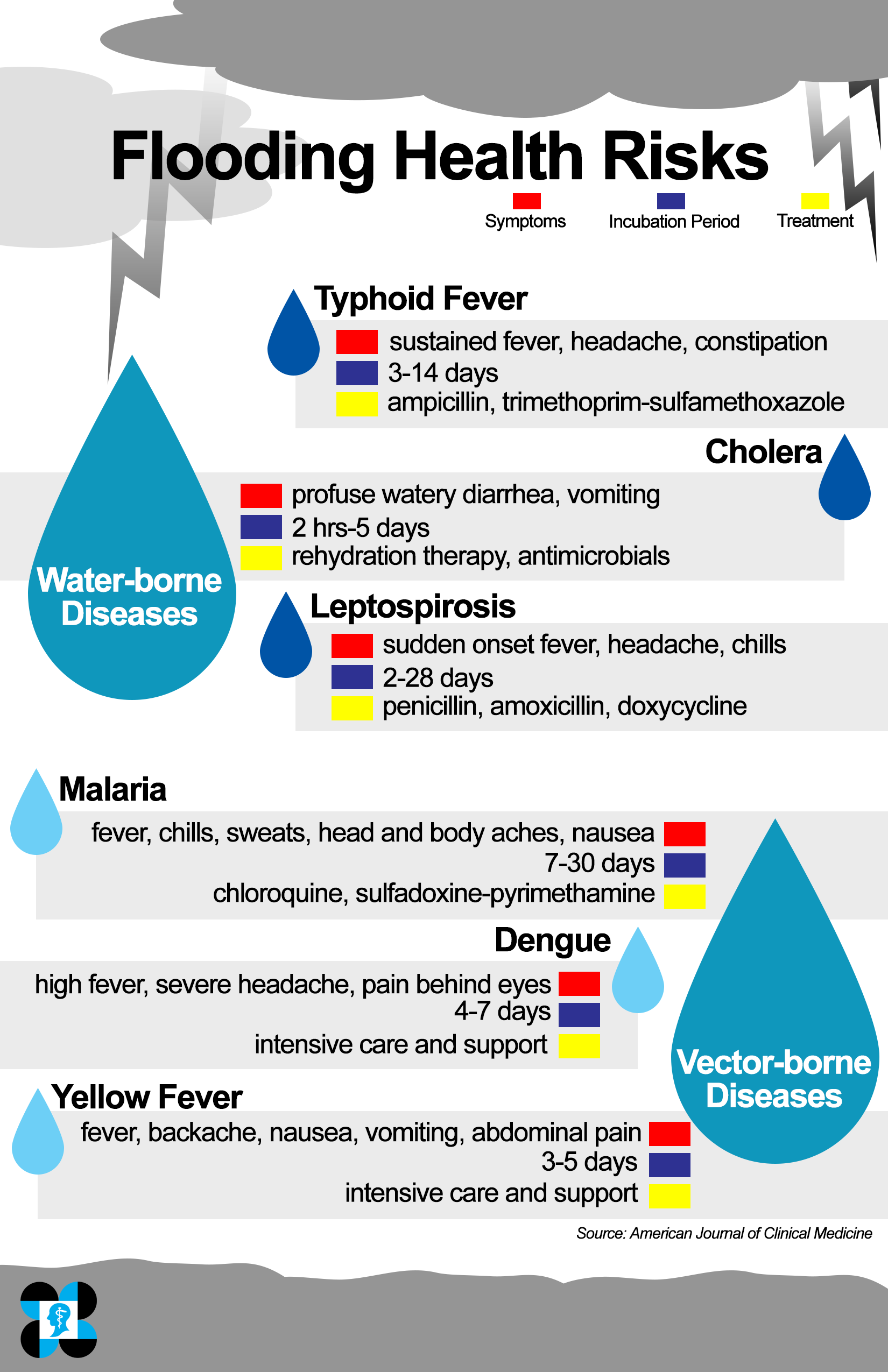During the rainy season when floods are very common, one should be extra cautious of the health risks brought by flooding.
According to the World Health Organization (WHO), flooding or “baha” can increase the prevalence of communicable diseases which can be water or vector-borne.
WHO explains that water-borne diseases such as typhoid fever, cholera, and leptospirosis are brought by water contamination, the major risk factor associated with flooding. The incidents of vector-borne diseases such as malaria, dengue, and yellow fever, on the other hand, increases due to standing water that serves as breeding sites for mosquitoes.

Other health risks
especially among workers who handle corpses during flood include tuberculosis, blood-borne viruses such as human immunodeficiency virus (HIV), and gastrointestinal infections such as diarrhea, WHO explained. People with wound exposed to bacteria in soil or feces have also higher chances of getting tetanus, an infection characterized by muscle stiffness, while children who immerse in floodwaters may suffer from hypothermia, a condition of having low body temperature.
“Ensuring uninterrupted provision of safe drinking water is the most important preventive measure to be implemented following flooding,” WHO states. Other preventive measures include vaccination of high-risk groups, and disease surveillance.
Workers who routinely handle corpses, on the other hand, are advised to wear gloves, wash both hands carefully after handling corpses, and disinfect vehicles and equipment used in operation.
WHO also encourages governments to create disaster-preparedness programs and early warning systems, improve water treatment and sanitation, and enforce high standards of hygiene. Moreover, Malacañang advised citizens to consult doctors if needed.
For more information, read WHO’s fact sheet at http://www.who.int/hac/techguidance/ems/en/FloodingandCommunicableDiseasesfactsheet.pdf and view Malacañang’s infographic at http://www.gov.ph/images/uploads/web_baha.png. For details about future typhoons, access PAG-ASA’s website at http://www.pagasa.dost.gov.ph/. ■
